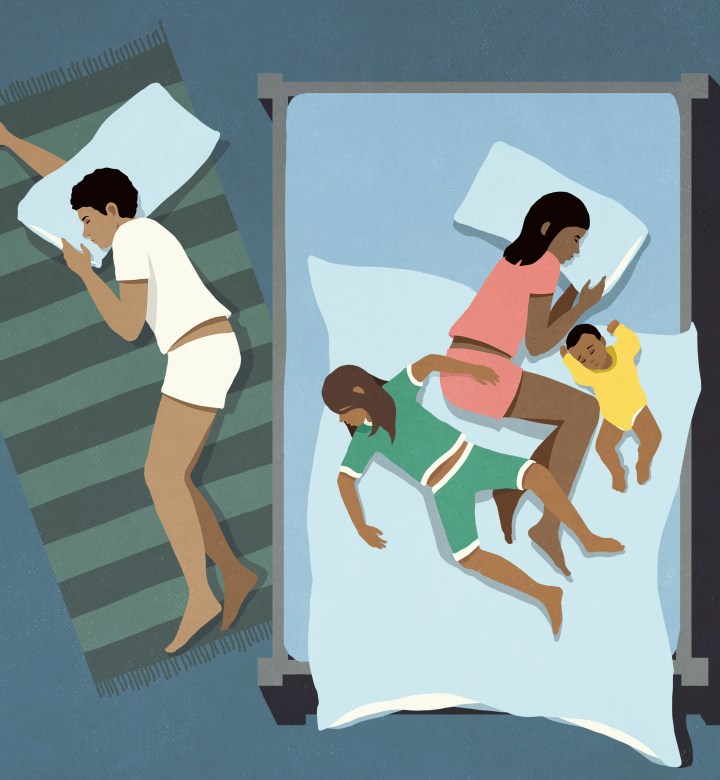No matter the culprit—sickness, nightmares, sleep regressions or simply a dogged determination to be nocturnal—one thing is for sure: If your kid’s not sleeping, you aren’t either. “There’s got to be a word for it,” a friend confided to me over lunch. “That feeling of dreading the night ahead.” Bedtime drags on, usually until you’ve fallen asleep in your kid’s room—maybe even before they have—and rest continually evades you, as you get up to inspect the caterwauling down the hall.
Often, as a parent, you can see the signs of a sleepless night hours in advance. Not again, you think. Not when I have so much to do tomorrow! “The Sound of Silence” rattles through your skull as you stare off into the distance. Forget Netflix and especially chilling—in a 26,000-person survey, data scientist Emily Oster found that most parents had sex less often after having kids, and the majority said it wasn’t happening often enough. Why? Many said they’re too—you guessed it—tired. (The impact stretches even farther than that: A 2022 Penn State study found that most parents are roughly an hour shy of a decent night’s rest, and that improved sleep leads to better mental health and overall life satisfaction, even more so than exercise.)
Sound familiar? You, friend, are struggling with exhaustential dread. It encompasses a range of emotions, which—based completely on anecdotal evidence from parents polled for this story—seems to fit into stages:



